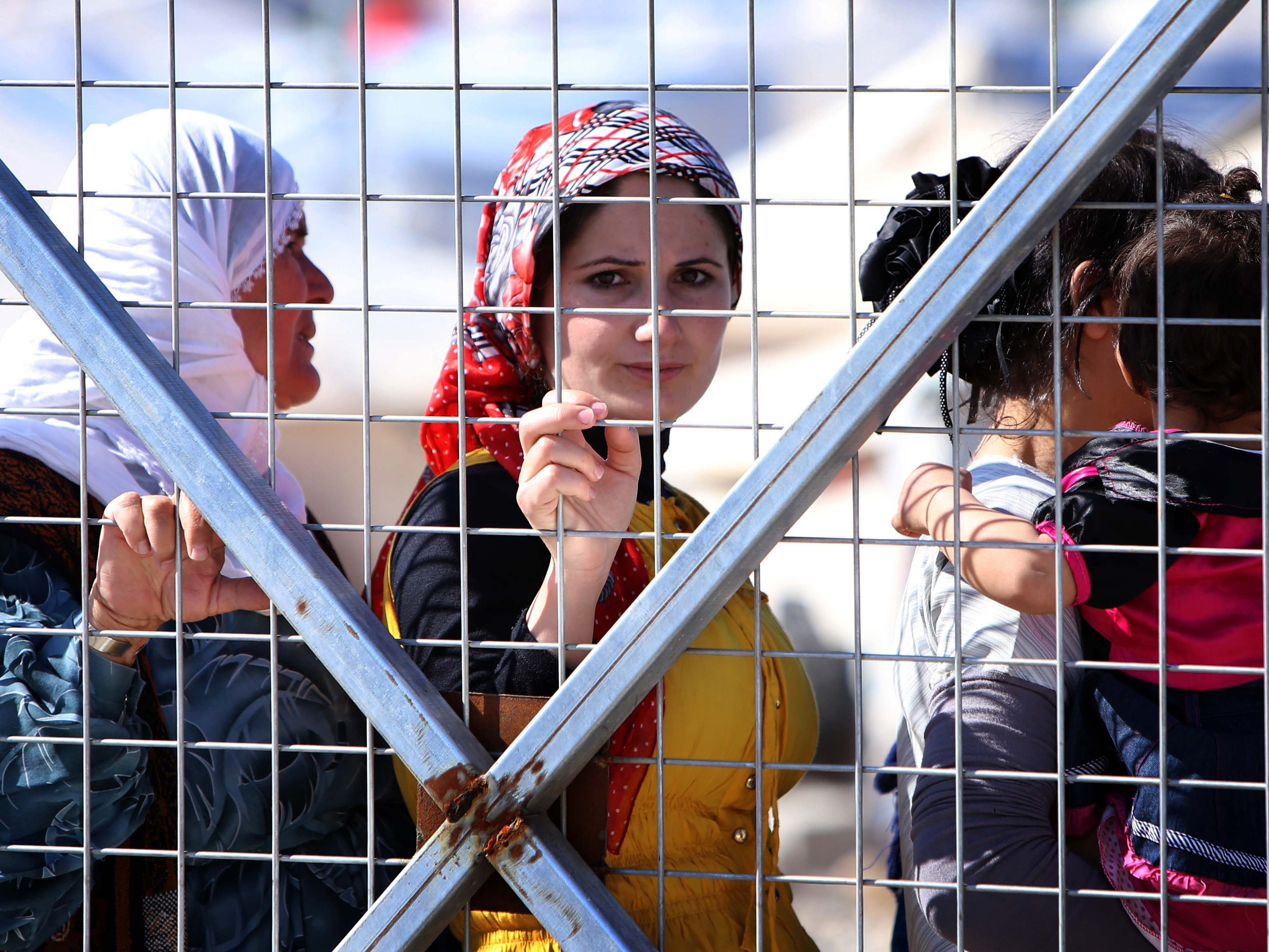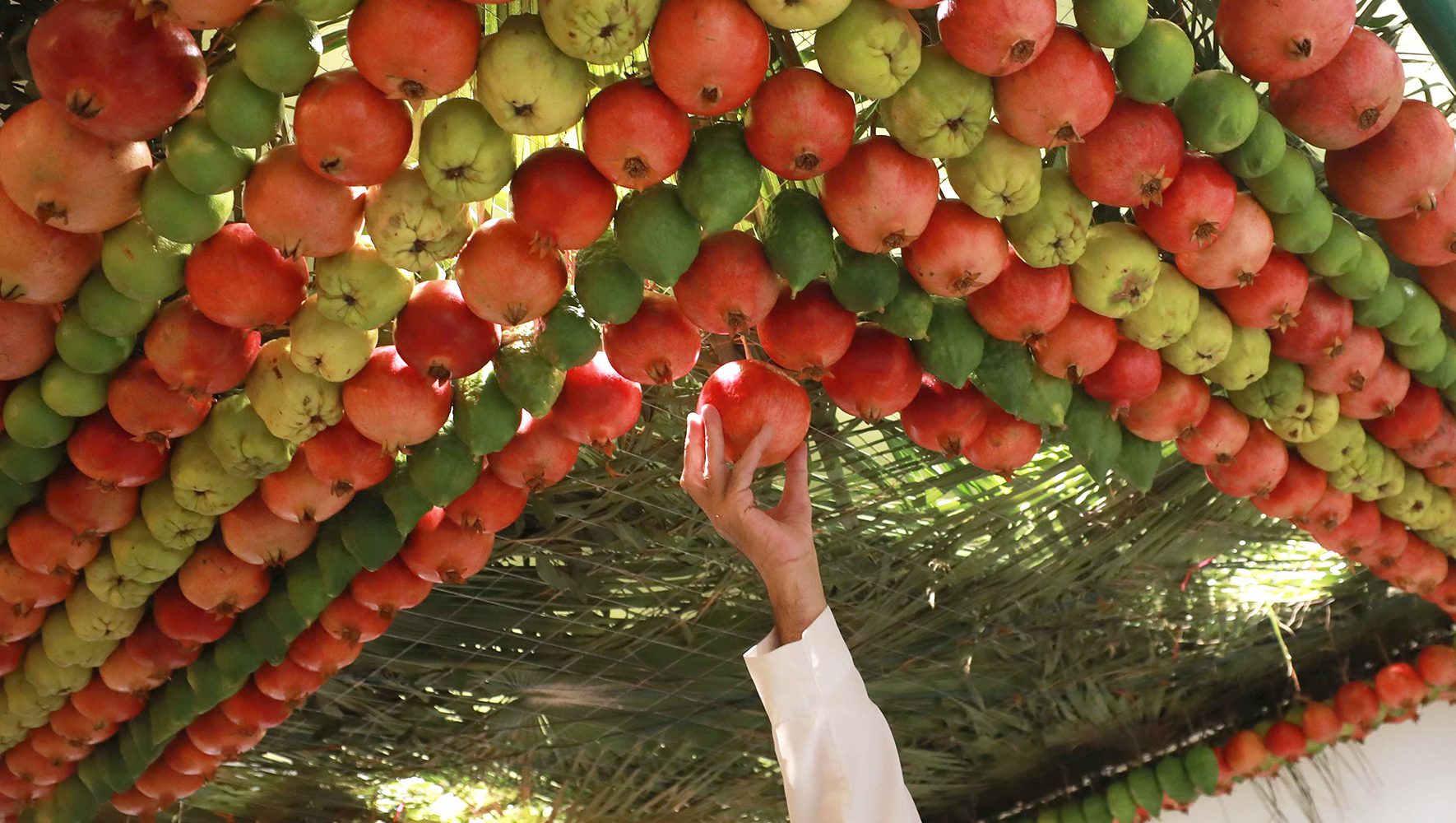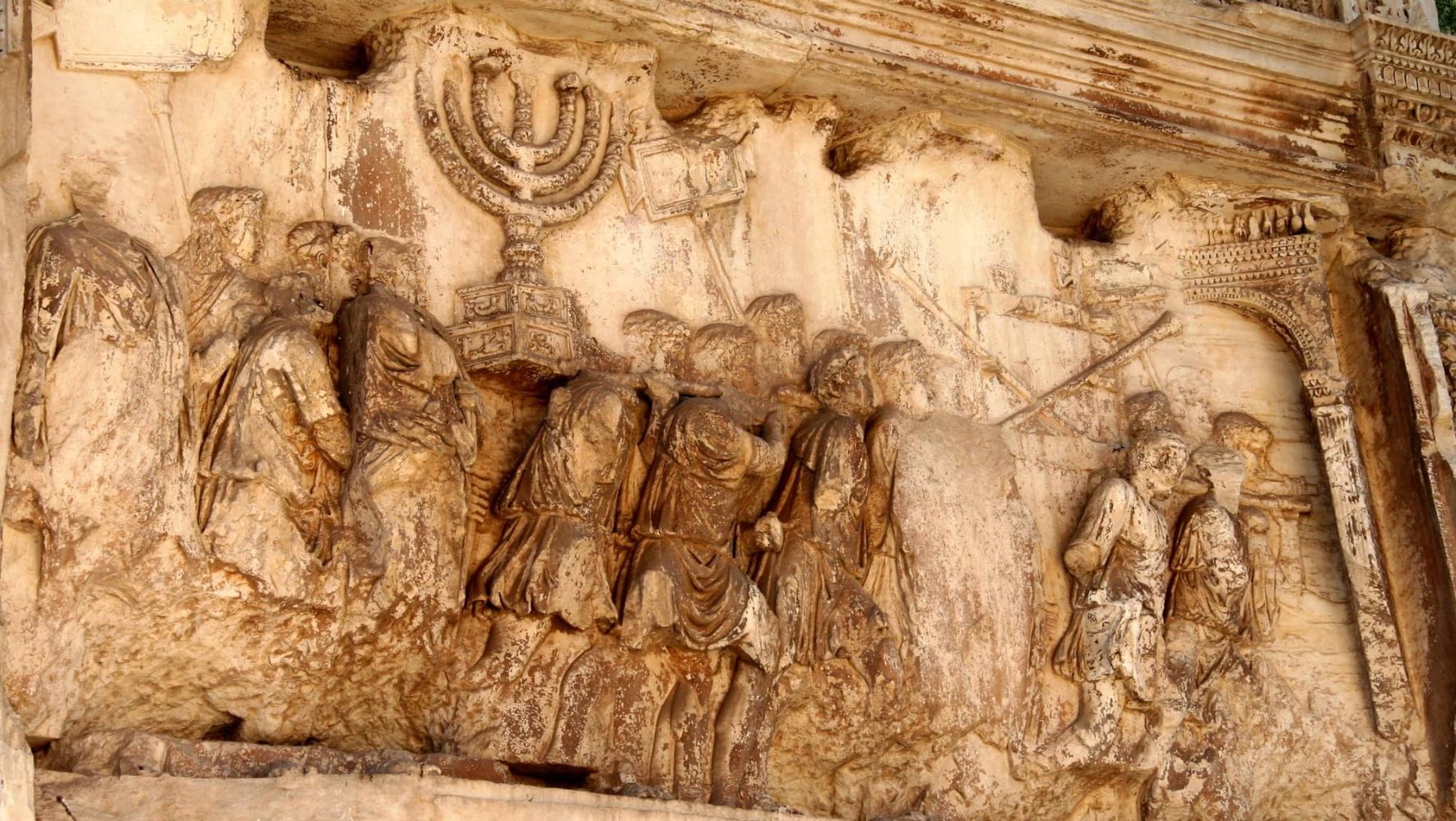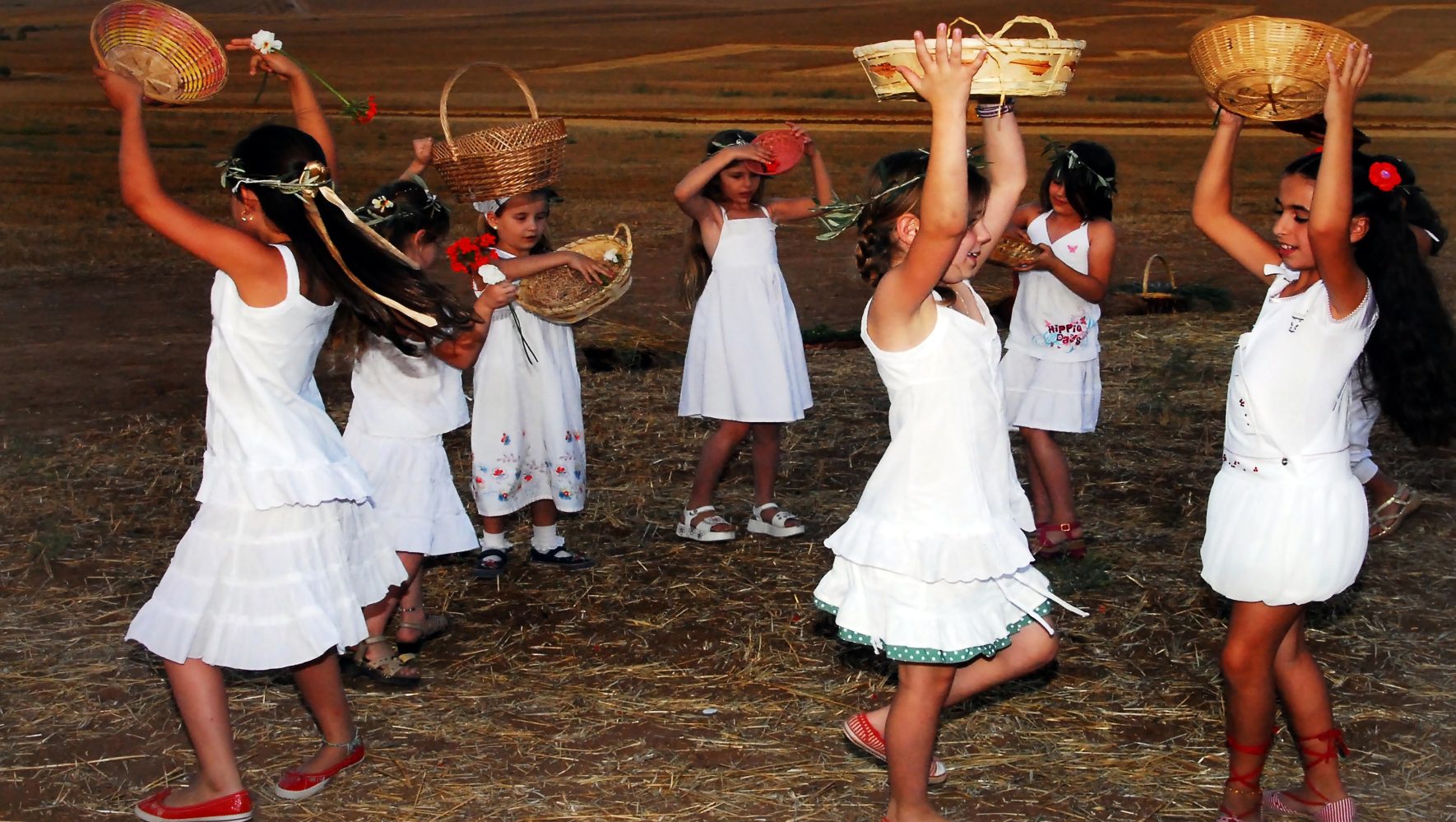From Ancient Persia to Modern Syria: Women Win the Day
By Rabbi Rachel Grant Meyer – Educator, Community Engagement
Mar 23, 2016

Syrian-Kurdish refugee women stand behind a wire fence on February 27, 2014 at the Qushtapa refugee camp, 15 kilometers South of Arbil, the capital of the autonomous Kurdish region of northern Iraq.
(SAFIN HAMED/AFP/Getty Images)
There is an old joke often told about Jewish holidays that says that every Jewish holiday shares a single trajectory: they tried to kill us, we won, let’s eat! As we approach Purim, the story isn’t so different.
This holiday comes with a twist, though, a departure from the regularly scheduled trajectory. Who was it that saved the Jews from what seemed like their certain demise? No, it was not an army of valiant men who set off to do battle with Haman, as in many of our other sacred stories. Rather, it was a crafty queen with an ingenious plan who saved the Jews. Queen Esther was her name.
It seems only fitting as we celebrate International Women’s Day this month that we also observe a holiday that celebrates the leadership of not one but two fierce and feisty women. After all, Queen Esther only became queen because (Ex-)Queen Vashti refused to submit to King Ahasuerus’ questionable demands for entertainment at a palace feast.
Sadly, though, even as we celebrate Purim, we know that the world is not free from the xenophobia that gave rise to the Purim story in the first place.
Today, this hatred is often directed at the world’s nearly 20 million refugees who come from places as varied as Syria, Uganda, Darfur, Colombia, the Democratic Republic of Congo, and Iraq. Over half of these refugees are women and girls who face unique challenges as they flee violence and persecution in their homelands. They face an increased risk of sexual and gender-based violence, sometimes “paying for” their travel by engaging in transactional sex or refusing to report sex crimes against them and seek medical attention in order not to delay their journey or their families’ journeys.
Women traveling to safety also lack adequate access to reproductive health facilities, which is a particular problem for pregnant and lactating women and women traveling with newborn babies. Some young refugee women are also at risk for early marriage as their families’ economic situation worsens or as marrying a daughter provides for her a way out of danger.
Yet, in the face of these seemingly insurmountable challenges and threats to their survival, like the capable women of the Purim story, many refugee women draw on incredible inner strength and show unfathomable resilience as they weather the journey to safety and work to rebuild their lives.
Take the story of Noor, a young Syrian refugee woman. During a guitar lesson at her apartment in Aleppo, Syria, security forces from Bashar Al-Assad’s regime knocked on her door. After they entered, a soldier immediately asked for the password to the laptop sitting on her desk. When the soldier saw her screen, he looked shocked and called for a general or major. Noor and her father were taken to jail, where she was held for 50 days in such cramped quarters that all of the prisoners in her cell could not sleep at the same time.
Still, Noor did not lose hope. She and her fellow detainees distracted themselves by interpreting each other’s dreams. What was Noor detained for, what had the soldier seen on her laptop? Noor was detained because the soldier saw pictures of children at the school that Noor helped open in the liberated areas of Aleppo. In the pictures, the children had made drawings that spoke out against Al-Assad’s regimes and depicted the people his soldiers killed.
Noor still says that her act of defiance to teach was worth it. Now, Noor, who has been living in Turkey for the last two years, delights in small pleasures, like riding a bicycle, which was illegal for girls in Syria. She says, “When I am riding my bicycle I feel happy and powerful. I made a decision in spite of society’s disagreement.”
As we ring in our Purim festivities this year, let’s pay tribute to women like Queen Vashti and Queen Esther, women like Noor - women who have said no to oppression and persecution and stood up for their rights in the face of those who sought to destroy them and their people. Let’s also commit ourselves to making the world a safer place for those refugee women who cannot yet defend themselves.
Find out more about how you can join the Jewish community’s response to the global refugee crisis here.
[[{"fid":"1589","view_mode":"default","fields":{"format":"default","field_file_image_alt_text[und][0][value]":"Rabbi Rachel Grant Meyer, HIAS","field_file_image_title_text[und][0][value]":"Rabbi Rachel Grant Meyer, HIAS"},"type":"media","attributes":{"alt":"Rabbi Rachel Grant Meyer, HIAS","title":"Rabbi Rachel Grant Meyer, HIAS","style":"float: left; margin: 5px; height: 133px; width: 100px;","class":"media-element file-default"}}]]



